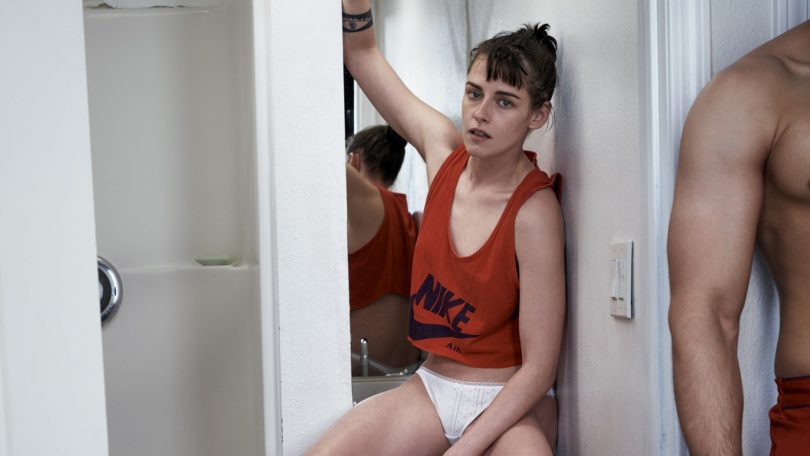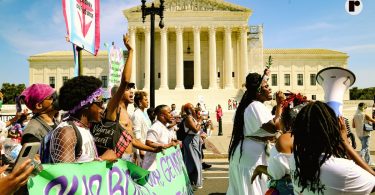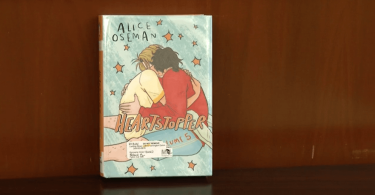Ever since 2012, when Donald Trump wrote a string of tweets about how Robert Pattinson should dump her, Kristen Stewart has occupied a curious space in the conservative imagination.
It was being reminded of those comments, as she revealed in Rolling Stone‘s March cover story, that inspired Stewart to come out as gay in a Saturday Night Live monologue five years later, shedding once and for all the waif-like image thrust upon her by the Twilight saga — the vampire romance movies that made her a force in Hollywood. Since then, she has become a queer icon of the big screen, pursuing layered roles in challenging and subversive films.
But the visibility of celebrities like Stewart (and lesser-known LGBTQ individuals) has been interpreted by far-right agitators as evidence that young people are being “groomed” into adopting sexual and gender identities that fall outside a heteronormative standard. Unsurprisingly, then, Stewart’s new photoshoot with Rolling Stone, which played with masculine-coded fashion and props (i.e., jock straps and gym weights), has this crowd foaming at the mouth once more.
Christopher Rufo, a primary architect of the astroturfed conservative panic over Critical Race Theory in schools and avowed enemy of diversity, equity and inclusion (DEI) initiatives, had an especially rabid take on the images of Stewart. He argued that queerness is an “ideology” and “appears to make people miserable.” In the same post, he purposefully deadnamed the actor Elliot Page, a trans man, claiming media depictions of him and Stewart are intended to “demoralize.” (It’s not clear that they have any such effect outside of Rufo’s reactionary cohort.)
Chaya Raichik, whose anti-LGBTQ hate speech from the X/Twitter account Libs of TikTok has been linked to bomb threats against her targets, had one word for the pictures of Stewart: “Disgusting.” She was responding to Oli London, a British right-wing influencer who in years past was a subject of U.K. tabloid fascination for his many plastic surgeries, which were intended to transform him into a lookalike of Jimin from the South Korean boy band BTS. (At one point, although white, London even identified as a “trans-racial” Korean.) London, a gay man, fumed that Rolling Stone “pushes ‘Queer’ and non-binary ideology” and took issue with Stewart saying in her interview that she wants to “do the gayest thing you’ve ever seen in your life.”
Ian Miles Cheong, a notorious Malaysian troll currently facing an avalanche of memes fantasizing about his execution by his government over past support for Israel, blamed Hollywood itself for Stewart’s preferred gender presentation. He shared the Rolling Stone cover alongside a photo of Stewart with Pattinson at the MTV Movie & TV Awards show in a seeming attempt to illustrate that the industry had coerced her into getting a mullet. Birdy Rose, a U.K. artist given to tweeting all kinds of transphobic statements, went a step further, predicting that Stewart would be “coming out as a man” by the end of the year — also likening her, with disapproval, to Elliot Page.
Conspiracy site Infowars rounded up these and similar reactions from semi-anonymous paid blue check accounts on X, concluding that the “transmogrification of the influential Hollywood actress sends a clear message about gender to impressionable young people, and it’s not difficult to see what that message is.” Of course, if culture magazines with androgynous and scantily clad models on the covers constituted some insidious brainwashing campaign, the conspiracy must date back at least half a century.
And conservatives’ newfound fear of Stewart as a harbinger of apocalyptic gender fluidity makes about as much sense as Trump’s unnerving interest in her dating life more than a decade ago — or, for that matter, the right-wing conspiracy theories positing Taylor Swift as the key player in an NFL playoff season scripted to help reelect President Biden. But, if nothing else, raging that a famous lesbian has graced the pages of a publication you already hate for being part of the “liberal media” is one way to get through a lonely Valentine’s Day.







